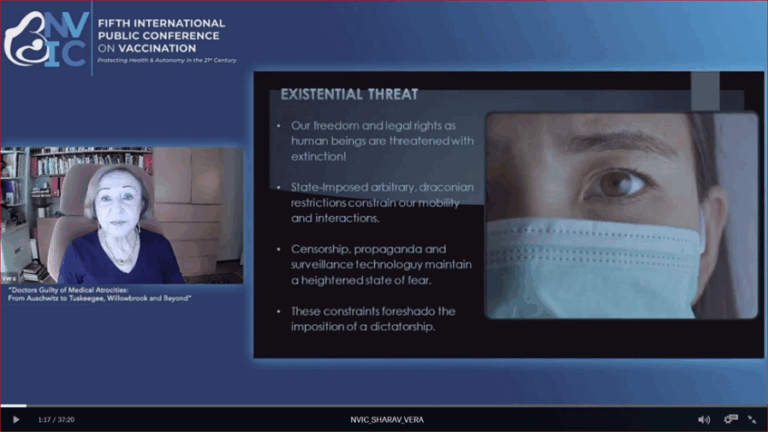Merck Suspends Campaign to Make Gardasil Vaccination Mandatory
The Wall Street Journal reports: "Merck said it would stop lobbying states to pass laws requiring
that preteen girls be vaccinated against cervical cancer in the face of
a growing backlash among parents, physicians and consumer advocates."
"In recent weeks, opposition to state mandates has grown among parents
who want the freedom to make such a medical decision on their own and
are worried about exposing their children to the unforeseen side
effects of a new vaccine. Physicians and consumer advocates have also
questioned the need to immunize young girls against a disease that is
no longer very prevalent in the U.S. and doesn't develop until much later in life."
Contact: Vera Hassner Sharav
212-595-8974
veracare@ahrp.org
http://online.wsj.com/article/SB117200727319814015.html
Wall Street Journal
Merck Suspends Campaign to Make Gardasil Vaccination Mandatory
By JOHN CARREYROU and SARAH RUBENSTEIN
February 20, 2007 4:52 p.m.
Merck & Co. said it would stop lobbying states to pass laws requiring
that preteen girls be vaccinated against cervical cancer in the face of
a growing backlash among parents, physicians and consumer advocates.
Merck's aggressive lobbying campaign was intended to boost sales of its
Gardasil vaccine, which received Food and Drug Administration approval
last year. Gardasil provides protection against two strains of the
human papillomavirus that are thought to cause the majority of
cervical-cancer cases.
But unlike a number of other diseases that U.S. schoolchildren are
required to be vaccinated against, HPV isn't an airborne virus that can
spread easily in a group setting. Rather, it is sexually transmitted.
Gardasil also stands apart from other vaccines that are compulsory
because of its high cost: $360 for a three-dose regimen.
In recent weeks, opposition to state mandates has grown among parents
who want the freedom to make such a medical decision on their own and
are worried about exposing their children to the unforeseen side
effects of a new vaccine. Physicians and consumer advocates have also
questioned the need to immunize young girls against a disease that is
no longer very prevalent in the U.S. and doesn't develop until much
later in life.
Merck's lobbying efforts have become a distraction from the company's
goal of immunizing as many women as possible against cervical cancer,
said Richard Haupt, Merck's executive director of medical affairs.
Merck has "decided at this point not to lobby for school laws any
further."
Write to John Carreyrou at john.carreyrou@wsj.com2 and Sarah Rubenstein
at sarah.rubenstein@wsj.com3
Hyperlinks in this Article:
(1) http://online.wsj.com/article/SB117082394405400647.html (2)
mailto:john.carreyrou@wsj.com (3) mailto:sarah.rubenstein@wsj.com
FAIR USE NOTICE: This may contain copyrighted (© ) material the use of which has not always been specifically authorized by the copyright owner. Such material is made available for educational purposes, to advance understanding of human rights, democracy, scientific, moral, ethical, and social justice issues, etc. It is believed that this constitutes a 'fair use' of any such copyrighted material as provided for in Title 17 U.S.C. section 107 of the US Copyright Law. This material is distributed without profit.



